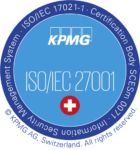Swiss validator
Use the official signature validator provided by the Federal Authorities of the Swiss Confederation to verify if a document is signed correctly with a qualified electronic signature (QES) according to the Swiss law (ZertES).
Language
Currency
Verify the validity of digital signatures on your documents using independent validators from the Swiss Confederation and the European Commission.
Use the official signature validator provided by the Federal Authorities of the Swiss Confederation to verify if a document is signed correctly with a qualified electronic signature (QES) according to the Swiss law (ZertES).
Use the official signature validator from the European Commission to ensure a document is signed adequately with a qualified electronic signature (QES) as per the EU regulation (eIDAS).
Under both Swiss and EU laws, the qualified electronic signature is the type of eSignature with the highest evidential value, and the only one that is legally equivalent to a handwritten signature.
Overall, Swiss and EU regulations define three types of eSignature: the qualified electronic signature (QES), the advanced electronic signature (AES) and the simple electronic signature (SES).
Find out more at: https://www.deepsign.swiss/en/features/legal-validity/
Yes.
Two of the electronic signatures DeepSign offers meet the statutory requirements for electronic signatures in the EU and Switzerland: the advanced electronic signature (AES) and the qualified electronic signature (QES). They are issued by qualified trust service providers (QTSP) and certification authorities in the EU and Switzerland. This also applies to the qualified timestamp used in the simple electronic signature (SES).
To decide which legal system is required for a signature, it is important to consider the content of the document for which you want to obtain the signature. You may need one regulated by the Swiss law or by another legal system.
When a document is sent for signing, the sender selects the jurisdiction (Switzerland – ZertES; EU – eIDAS) which legal requirements the electronic signature should meet. The selection is then displayed on the visual signature element of the document.
DeepSign offers three types of electronic signatures recognised by international regulations: simple electronic signatures (SES), advanced electronic signatures (AES) and qualified electronic signatures (QES).
The type of electronic signature that you need to use in each case depends on the written form requirements for the relevant document, your contractual agreements and your company policy.
To find out the appropriate type for your specific situation, please consult with a legal advisor.
Simple electronic signatures (SES)
For documents with no written form requirement. A qualified electronic timestamp guarantees document authenticity. Useful when there are no written form requirements. Also suitable for digital document retention solutions.
Advanced electronic signatures (AES)
For documents with no written form requirement. With this type of signature, the signatory is identified in advance. It not only ensures that the documents are authentic but also that they are properly linked with the signatory.
Qualified electronic signatures (QES)
For documents subject to written form requirements under EU or Swiss law. With this type of signature, the signatory is identified in advance. It not only ensures that the documents are authentic but also that they are properly linked with the signatory. In addition, it is issued with a qualified certificate from a qualified trust service provider (QTSP). The QES therefore is legally equivalent to a handwritten signature.
The use of qualified electronic signatures offers crucial validation capabilities, including cryptographic proof and secure identity verification. These features are key to assess and authenticate electronic signatures.
There are two specific methods to confirm the validity of a QES, each aligned with different regulatory standards:
Accessible on the European Commission’s website by clicking the button above, this web-based application is designed by the European Commission to verify QESs in compliance with the EU regulation (eIDAS). Users can upload their signed document to obtain a comprehensive validation report. This tool requires an internet connection to access and download the report, which can serve as a digital certificate of authentication.
Available on Federal Chancellery’s website by clicking the button above, this platform verifies that a document is correctly signed with a QES according to the Swiss law (ZertES). By uploading your document to the official Swiss validator, you can quickly obtain a validation report, ensuring compliance with Swiss standards.
Each tool is tailored to specific regulatory environments: the EU DSS Tool is for validation under the EU regulations, while the Swiss Validator is essential for verification under the Swiss law. Both are reliable tools to authenticate the integrity and legality of electronic signatures according to the related legal framework.
DeepCloud certificates

Information security management for hosting services, in accordance with the Statement of Applicability.

Unattended remote identity proofing with hybrid manual and automated operation according to the international standard ETSI.
Partnership request
API request
Stay updated
Contact
DeepCloud certificates

Unattended remote identity proofing with hybrid manual and automated operation according to the international standard ETSI.

Information security management for hosting services, in accordance with the Statement of Applicability.